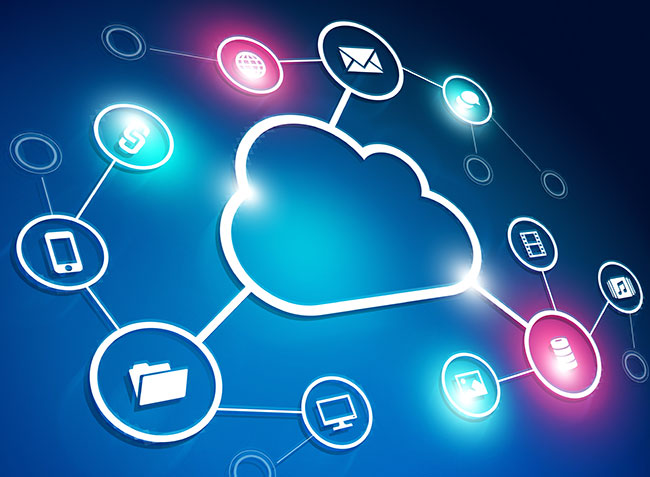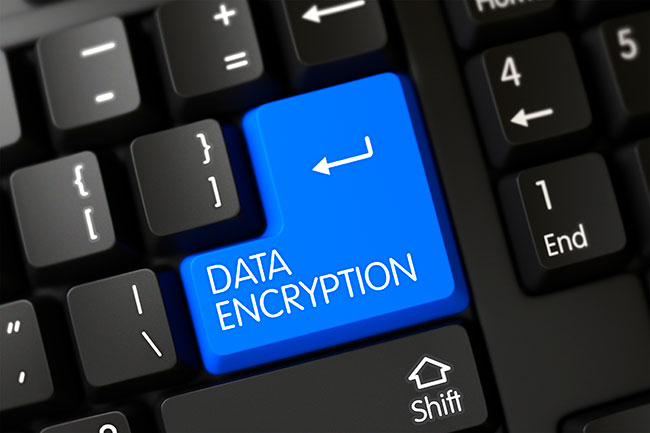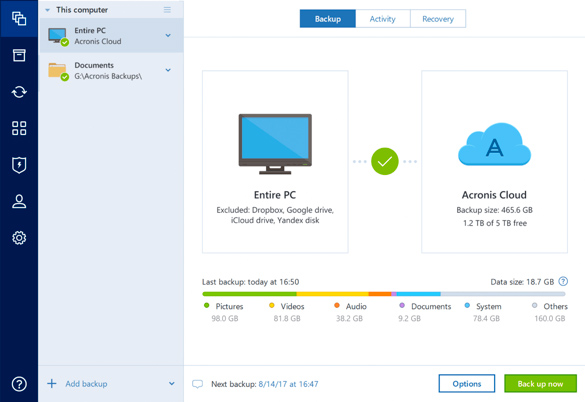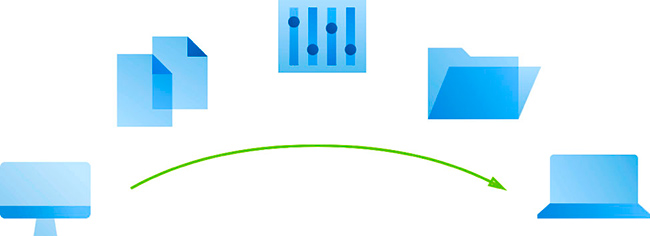
Gone are the days when people used personal computers just to write letters or work on spreadsheets. No, these days, computers (and even our smartphones) help us do everything from booking reservations and conversing with friends and family to filing our taxes and everything in between. Also, let us not forget how many of us use our systems as entertainment sources with social media and video streaming. Consequently, we store and keep more data on our devices than ever before. And, if you’re like most people, a lot of that data is stuff you don’t want to lose. Therefore, in this article, we will discuss backing up your data to external hard drives and encrypted cloud storage, as well as the pros and cons of each.
What This Article Will Cover:
- The Basics of Cloud Storage versus External Hard Drives
- Encryption and Security Comparison of Cloud Storage and External Hard Drives
- Why Cloud Storage is Ultimately a Better, Safer Solution than External Hard Drives
- The Advantages of Using Acronis True Image 2020 with the Acronis Cloud
The What and Why of External Hard Drives
By its name alone, it should be relatively simple to figure out what an external hard drive is and does. Nevertheless, if you’re not familiar with tech jargon, an external hard drive is simply a hard drive enclosed in a container (or shell) that connects to a computer, or another compatible device, externally via a cable connection. And, like other types of hard drives, an external hard drive’s primary function is to store data; the only major difference being that the unit resides on the outside rather than inside the system.
Cloud Storage Basics
While very popular these days, the term “cloud” is used very loosely to refer to what is really just files and folders hosted on a remote server and accessed via the Internet. So, when you hear someone speaking of uploading files to the “cloud,” what they are actually saying is that they are using their Internet connection to copy or transfer data to a machine located somewhere else.
These remote servers, commonly known as “cloud storage servers” can be systems (either physical or virtual) owned and managed by a user; or, as is the case in most instances, hefty server systems owned by large enterprises or service providers. While there are a few differences in the actual storage or transfer process (depending on the company, service, or infrastructure you use,) “uploading” a file to a cloud server is essentially the same with all methods and providers (i.e. select the files you want to back up or transfer, and send them on their way via the Internet.)
Personal File Storage vs. Cloud Backups
When it comes down to it, your data is only as safe as the backups you keep. So, using any kind of backup method is better than not backing up at all. And, in all fairness, both external drive and cloud backups can help in implementing an effective backup strategy. Still, there are some pros and cons to both types of backup storage. So, let’s compare the two to help you determine which type of backup strategy is best for you.

External Hard Drives – USB is King
While there are several types of connectors available for external hard drives, the vast majority connect to their host systems or devices via a common USB cable. In fact, it’s increasingly rare to see external hard drives with connectors other than USB, unless they are of an older, legacy variety. Regardless of the connection type used, though, all external hard drives operate essentially the same.
USB – Near Universal Compatibility and Portability
Because they use a common USB interface, external hard drives are extremely portable. This means USB external drives can be connected (or disconnected) quickly from virtually any standard desktop or laptop computer. And, in some cases, can even connect to certain smartphones and other mobile devices. This type of quick connectivity and portability ensures that you have access to important data even if your primary host device or system fails or is lost.
Fewer Snooping and Hacking Concerns
Uploading data to the cloud requires a certain level of trust that the service provider or hosting company will keep your data secure and also never attempt to look at it. And, while there are certainly trustworthy cloud storage services out there, using an external hard drive removes that particular worry completely (as only you have control over who has access to the data.) Keeping your external hard drive disconnected when not in use, and then hidden or secured in a fireproof safe will help further protect against prying eyes and hackers.
The Not So Good
External hard drives are an easy and effective way of backing up files from your computers. And, they can be a great first step in creating a good backup strategy. Still, there are a few potential pitfalls with external drives that you should consider before relying on them as your primary form of backup storage.
They All Fail Eventually
With any type of physical hard drive, one thing is certain – at some point, it will fail and stop working. Most external hard drives are still mechanical devices with spinning platters that are susceptible to heat and other elements, as well as just plain ole physical failure. And, while modern SSD-based external drives can be more reliable, they are still prone to over-write failures and damage due to electrical instability or surges. If an external drive used to back up important data fails, your files are probably just gone – unless it can be recovered by a very expensive recovery service (and that’s still a big “IF.”)
Fire and Other Natural Disasters
As mentioned above, storing an external hard drive in a safe is a good way to protect data from snoopers and hackers. Still, even a safe can’t usually protect the hard drive from fire other natural disasters. Additionally, even if you do keep an external drive in a fireproof safe, it is still susceptible to damage from floods or other events that may physically destroy the device.
Non-existent or Questionable Security and Encryption
In most cases, connecting and using an external hard drive is super simple. However, that simplicity comes with a price, (at least in most cases) and that is a lack of encryption or security. Yes, there are a few external drives that do provide basic password encryption. And, yes, you can secure external drives with software encryption tools, such as BitLocker and Veracrypt. Nevertheless, setting up encryption on external drives does require some tech savvy and patience. Also, you must ensure that you never lose your encryption keys, as doing so means you lose all access to your stored data.

The Advantages/Disadvantages of Encrypted Cloud Storage
The cloud has revolutionized the way both businesses and consumers collaborate, communicate and safeguard their data. And, while storing data in the cloud is certainly a popular option these days, it is not without its potential downsides. Therefore, in this section, we’ll look at some of the pros and cons of cloud backup services.
Data Available Anytime and Anywhere
One huge advantage to an online backup in the cloud is the fact that you can access your data at any time and from anywhere; well, as long as you have an Internet connection. You can access your cloud backup files from a desktop PC, a laptop, or (in most cases) even from your smartphone. You can do this all while not having to lug around an extra device everywhere you go (i.e. an external hard drive.)
Better for Disasters and Emergencies
On one hand, external hard drives provide a good medium for your backup data – as long as there are no physical threats such as fire, flooding or other dangers. On the other hand, secure cloud storage services provide you, and your data, an extra layer of protection by storing your important files offsite. So, if the unthinkable does ever happen, your files are still available in the cloud. Trust us; you’ll really appreciate this important additional protection should you ever need to restore your backup files after a fire or natural disaster (let’s hope that never happens, though.)
Backups of Your Backups
Losing any of type of data is simply not acceptable – especially when there are easy ways to prevent such loss. Storing files and data in the cloud gives you the peace of mind of knowing that should something happen to your system or local storage, you still have viable copies of important files on the remote server. This is what is commonly known as redundancy, which – in this case - simply means having additional copies of your backup files. Additionally, better cloud storage service providers keep backups of your cloud data. And, the best cloud backup and storage providers (like Acronis) keep multiple backups of your important files on multiple servers and in multiple locations (yes, lots of multiples.) The point is, though, you should always depend on your cloud storage provider to keep more than just one copy of your files.

Encryption and Security
If you follow news about the tech industry even a little, you’ve probably heard stories about the websites and servers of major corporations and service providers being hacked or compromised. And, this is certainly a valid concern when trying to decide whether (or not) you want to trust your valuable data in the cloud. Generally speaking, though, most legitimate cloud storage providers do a much better job of securing user data than other types of online companies and organizations.
Multi-Layered Encryption
The best cloud storage providers implement a multi-layered approach to security that uses strong encryption from the moment files are sent over an Internet connection. The most secure providers also use military/government-grade encryption to protect your files while they reside on their servers. This type of hardened encryption ensures that your files are secure while in transit to the remote servers and also prevents a would-be hacker from viewing file data – even if they do somehow manage to get access to the server machine itself (which is virtually impossible with the best cloud storage providers.)
Why Choose? Use Both Solutions
By now, we hope you have a basic understanding of the primary differences between using external hard drives and cloud storage for backups. After reading the information above, you might prefer one type of backup storage over the other. However, you really should consider using both methods of backup for protecting your valuable data and sensitive files. It’s true that using both external hard drives and a cloud storage provider to back up can be tedious and time-consuming – that is if you don’t have the right backup solution.
The Best Backup Methods All in One Solution – Acronis True Image
With Acronis True Image in your arsenal, you will no longer have to worry about finding the single best backup solution. No, with our software, you get unparalleled dual-protection (cloud and local compatibility) and can back up quickly and easily to virtually any medium you can imagine. External hard drive backups, check; Network Attached Storage (NAS) backups, check; USB flash drives, check; and of course, the absolute best cloud backup solution – the Acronis Cloud.
The Only Backup Solution You’ll Ever Need
Acronis True Image 2020 makes it easy to back up any type of data to virtually any type of storage device or environment. In fact, you can create a backup of a selected dataset or your entire system with just two clicks of the mouse and then store your data locally or in the cloud. Besides quick and simple backup creation, though, Acronis True Image offers a host of other best-in-class features to ensure your backups are reliable, safe and secure. Here are just a few of the features you have access to in True Image 2020:

Full or Mirror Image Backups – With Acronis True Image 2020, you can protect anything and everything on your system, or you can choose to create smaller backups of only certain files and folders. All backup images are exact replicas of your system disk(s) or files. And, if you ever do need to restore from a backup, you can easily restore your entire system or just a single file.

Active Disk Cloning – Buy a new hard drive or system? If so, Acronis True Image can help you migrate your operating system, settings, programs, files – everything – to the new system or disk. You can do this with just a few clicks and without restarting your system.

Active Ransomware Protection – Not only does Acronis True Image make it easy to back up your files and system, it also provides world-class protection for your files against ransomware. Acronis Active Protection uses artificial intelligence that detects and stops ransomware and automatically reverses its effects with clean copies of files from encrypted backup files.
Much More – Too Much to List
The above-mentioned features are but a few of the many that Acronis True Image 2020 uses to protect your important data and files from loss and theft. If you would like to find out more about Acronis True Image 2020, and how it can help you keep all your files and data safe, visit the Acronis True Image 2020 Features page on our website.
About Acronis
Acronis is a Swiss company, founded in Singapore. Celebrating two decades of innovation, Acronis has more than 1,800 employees in 45 locations. The Acronis Cyber Protect Cloud solution is available in 26 languages in over 150 countries and is used by 20,000 service providers to protect over 750,000 businesses.




